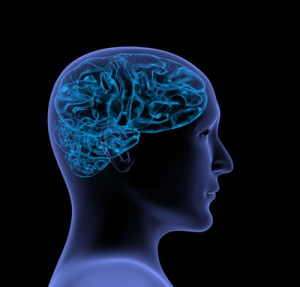Does being a high-powered, successful professional make your brain more susceptible to addiction? 
It just might. Recent research shows that not only might the CEO brain be more susceptible to drug or alcohol abuse, but the environment of a high-powered professional also lends itself to putting someone at risk for substance abuse. High stress, long hours, lack of sleep, eat and run, little time for exercise, self-care or relaxation, all might put extra strain on a brain that could already be pre-disposed to addiction. And on top of that, add a business culture of drinks and parties and you have an environment that is perfect for drug or alcohol use to get out of control.
According to David Linden, PhD, a neuroscience professor at Johns Hopkins’ School of Medicine and author of The Compass of Pleasure: How Our Brains Make Fatty Foods, Orgasm, Exercise, Marijuana, Generosity, Vodka, Learning, and Gambling Feel So Good, all of the traits that make a great CEO – “risk-taking, strong drive for success, obsession, dedication, novelty-seeking” – are all traits that make a great CEO of a company, but they are also traits that could drive a serious drug or alcohol addiction on a psychological, molecular and neurological level. How? The pleasure system of the brain that drives a business person to make the risky job decisions or pursue the new venture is linked to the same reward center pathway in the brain that drives substance abuse.
And a recent study by the National Institute on Alcohol Abuse and Alcoholism found that 20% of alcoholics are high-functioning and well-educated. Among this crowd painkiller opiates and alcohol seem to be the drug of choice. Business professionals often find themselves in a working environment in which substance abuse is prevalent and yet difficult to define because there is a certain level of acceptability and secrecy (think happy hours, business dinners and drinks, and office parties). This type of environment can be a dangerous match for a brain more susceptible to addiction. And even though the CEO might be able to “function” at work (most of the time with productivity severely suffering), there is usually “assistance” to keep them propped up because of the crucial role they play within companies (sometimes with the survival of a company dependent on their functioning). Many companies find themselves in “desperate time call for desperate measure” situations, covering for top people because the company can’t afford for them to fall.
This is why treatment programs specially tailored to the business professional are important. One size doesn’t work for anyone, but it especially doesn’t work for the CEO. In fact, it often means they don’t seek treatment at all. The biggest obstacles being time (which makes lengthy rehab stays even more challenging) and stigma. With today’s advances in technology, getting treatment doesn’t have to equate “falling.” It’s as an opportunity to step back, recharge, and re-optimize one’s brain to keep one’s life on track.
Executive wellness is about more than just discontinuing the use of drugs or alcohol. It’s about taking a high-performing brain and introducing it to cutting-edge neuroscience technologies with a concierge model of aftercare that focuses on specific areas of one’s life. This customized, comprehensive approach blends a variety of options to best support the needs of a professional and increase the odds of success. It focuses on getting the body and brain back to functioning at optimal levels with NTR Brain Restoration and on developing sustainable behavioral changes that will revolutionize one’s life at work and home.
Let us help you build your plan of excellence.


